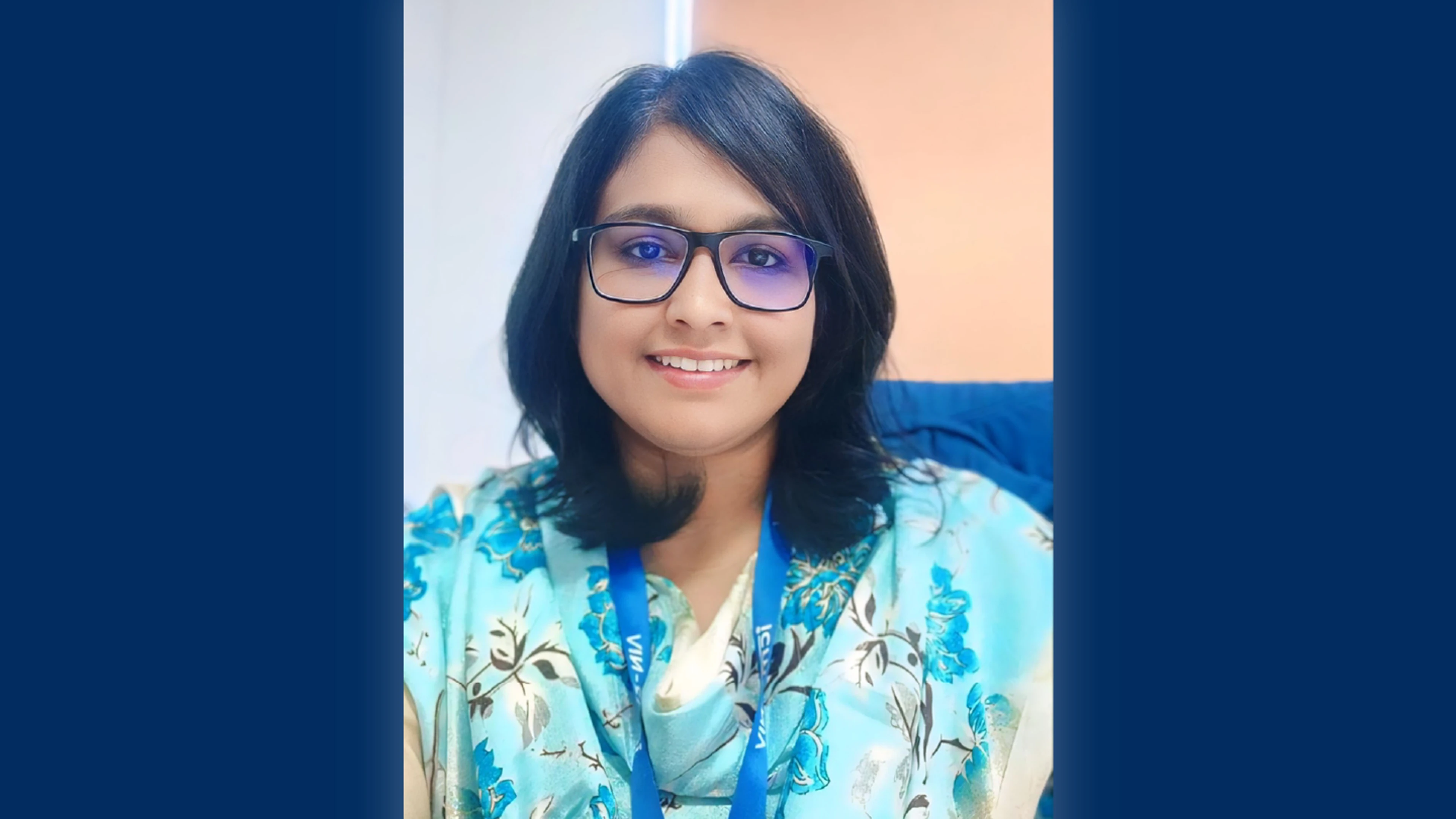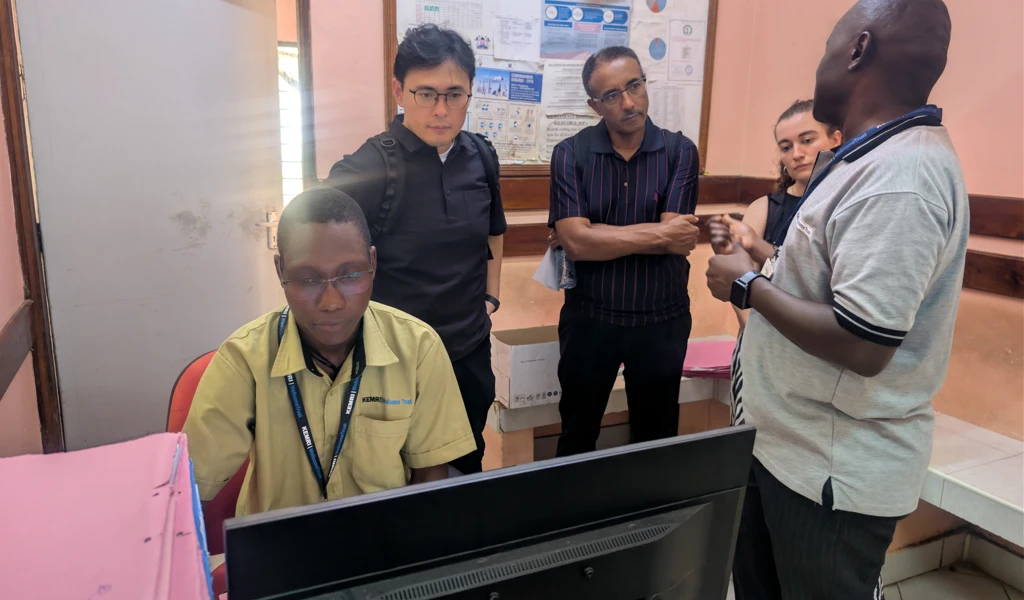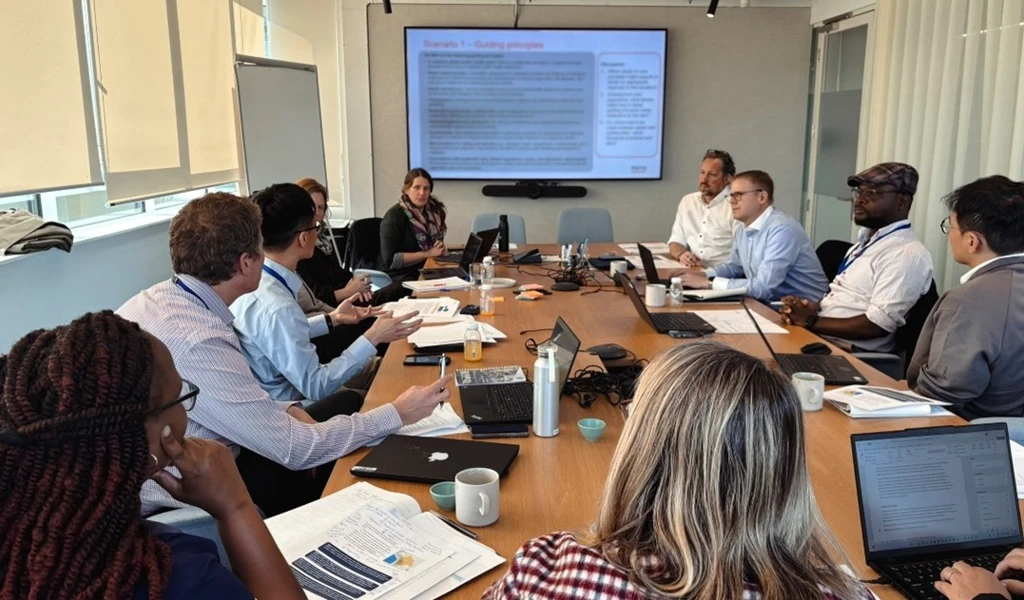In mid-2024 CEPI welcomed its inaugural Global South Fellows. The Fellowship Programme aims to build capacity for future global health leaders, enhance readiness for the 100 Days Mission in the Global South, and facilitate knowledge exchange through improved global collaboration, in support of CEPI’s vision for a pandemic-free future.
Now, halfway through the year-long fellowship, we caught up with Dr. Rima Rakeshkumar Sahay —one of the Fellows embedded in CEPI’s Epidemiology and Data Science team—to discuss her experience.
Can you tell me a bit about yourself?
My name is Dr. Rima Rakeshkumar Sahay, a medical doctor from India. I’m currently working as a scientist and epidemiologist at India's ICMR-National Institute of Virology (ICMR-NIV) in Pune. Here, I work on preparedness and outbreak response, including developing guidelines, conducting clinical-epidemiological studies, and providing biosafety training for high-risk viral pathogens like Nipah, mpox, Ebola, Marburg and others.
How does your work contribute to pandemic preparedness and response?
I've been on the front lines of pandemic preparedness, serving on rapid response teams at both state and national levels to combat deadly viral outbreaks.
During the COVID-19 pandemic, for example, we conducted extensive studies, including vaccine effectiveness assessments, breakthrough infection analyses, and neutralisation response evaluations against emerging variants of concern. This time-sensitive, crucial research actually informed India's vaccine rollout strategies for COVID-19.
And when mpox was declared a public health emergency in 2022, I contributed to the development of mpox clinical management guidelines and helped boost mpox detection capabilities across India by activating 35 labs and providing extensive training both nationally and regionally.
I was also part of the ICMR-NIV team which validated Asia's first biosafe mobile laboratory, which was subsequently deployed to Kozhikode, Kerala, during the 2023 and 2024 Nipah virus outbreaks. I led the field team, overseeing outbreak containment and the mobile lab's operations.
Not forgetting my contributions to India's first-ever nationwide pandemic preparedness mock drill. This landmark exercise, involving the activation of the National Joint Outbreak Response Team, provided crucial insights into our readiness to combat high-risk pathogens.
Tell me about the project you’re working on at CEPI.
My Fellowship project is all about sharpening our infectious disease modelling techniques for high-risk pathogens, particularly Nipah virus. India has faced eight Nipah virus outbreaks, yet we lack modelling studies tailored to the Indian context to effectively guide our policies. That's where my project comes in. I'm focusing on building a Nipah virus disease model specifically for India, which will be a game-changer for our policy decisions. Through this modelling, we’ll gain a much clearer picture of the virus's spread, including the reproduction number, potential "Nipah-X" scenarios, the number of missed spillover cases, and even the optimal doses of vaccine and monoclonal antibodies needed to control outbreaks.
I'm incredibly fortunate to be working with my CEPI mentors Carolin Vegvari and Arminder Deol, who are guiding me through the intricacies of disease modelling and data analysis, ensuring our model accurately reflects the unique dynamics of Nipah outbreaks in India.
What skills have you been able to share with CEPI during your fellowship?
I bring a unique blend of skills to the CEPI team, acting as a collaborative bridge between Indian stakeholders and CEPI. My expertise in containing outbreaks of high-risk pathogens, coupled with fresh perspectives on One Health initiatives, has been a valuable asset. My experience deploying and working in mobile labs—critical for responding to outbreaks—is particularly relevant, especially as this sort of lab could be useful for other CEPI disease areas in the future.
I’m also able to share my biosecurity expertise with CEPI, leaning into my work at ICMR-NIV, which ensures our labs operate to the highest standards of biosafety and biosecurity.
What skills have you learned while being a Global South Fellow at CEPI?
This fellowship has been an incredible learning experience, equipping me with invaluable skills that will undoubtedly shape my future contributions. I'm currently learning about infectious disease modelling, a critical tool for predicting and managing future outbreaks in India.
It’s also provided invaluable exposure to diverse teams tackling a range of priority pathogens, giving me a front-row seat to cutting-edge R&D efforts. I've even had the opportunity to contribute to the planning and discussions surrounding the development of a Nipah vaccine trial protocol. This sort of protocol would allow India to hit the ground running with a vaccine trial during a future Nipah epidemic.
What do you hope to have achieved by the end of your fellowship?
This Fellowship has been a transformative experience, and I'm confident I'll emerge with a deep understanding of infectious disease modelling, especially as it applies to the unique challenges and context of India. I'm also eager to learn and contribute to streamlining real-world data collection during outbreaks, which is essential for maximising the impact of disease modelling.
My time at CEPI has solidified my belief in the absolute importance of public health preparedness and its vital role in effective outbreak response. I'm committed to using this experience to drive preparedness efforts forward for enhanced and resilient public health systems.

.webp)


